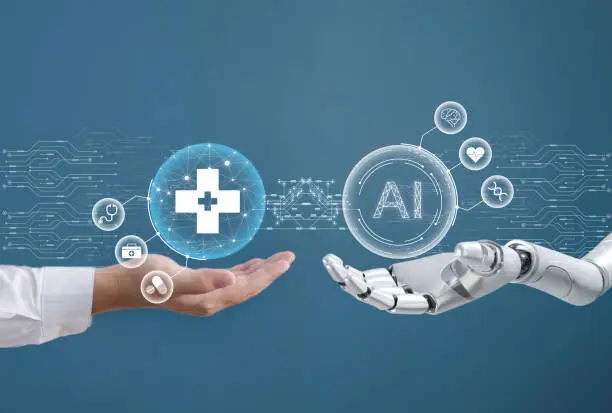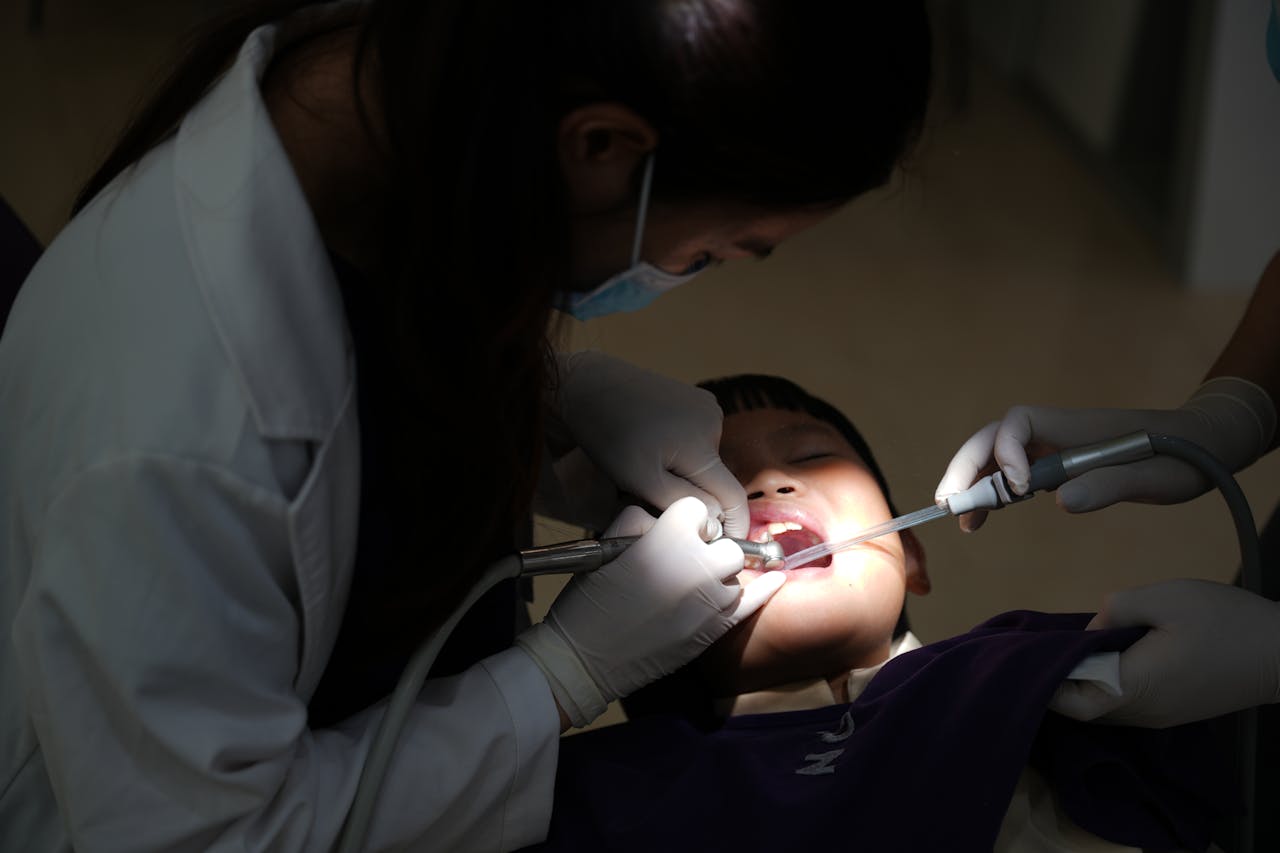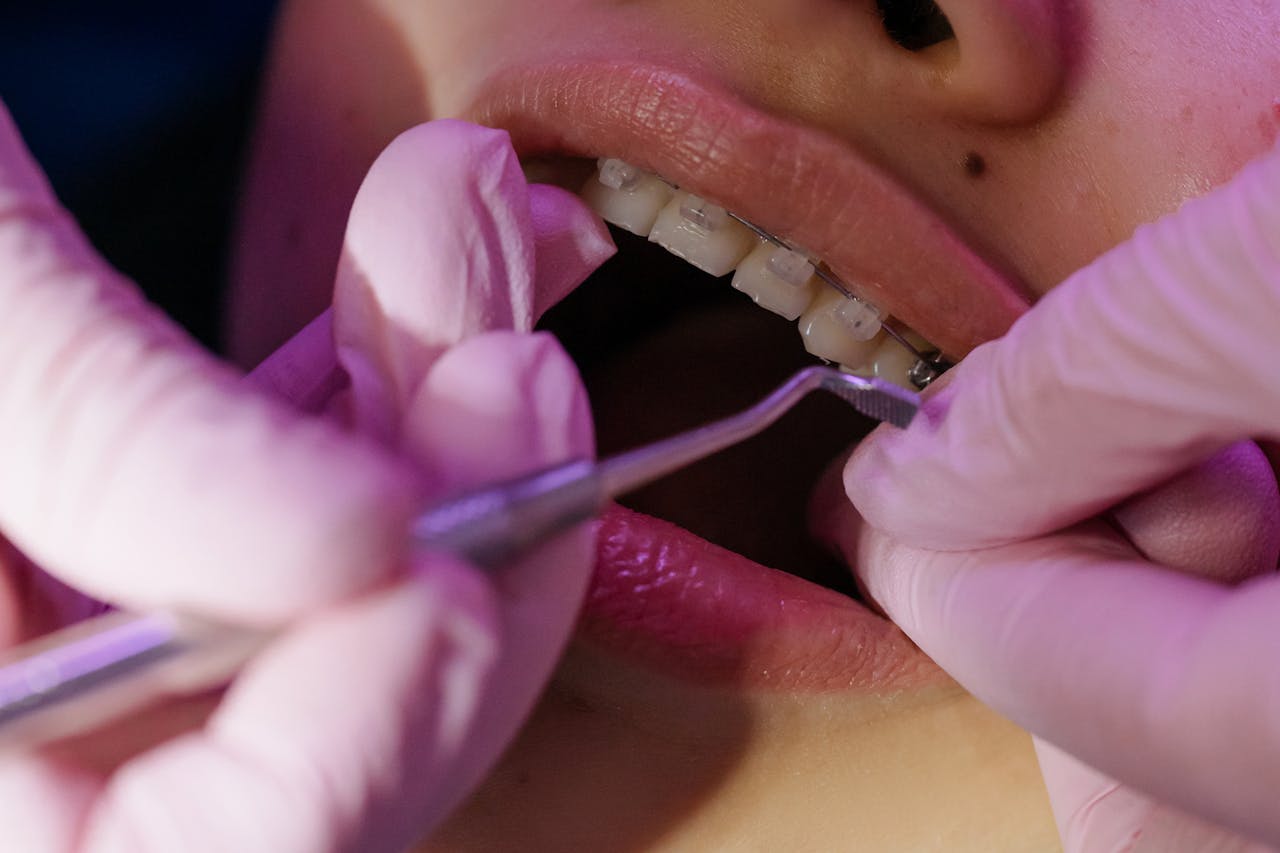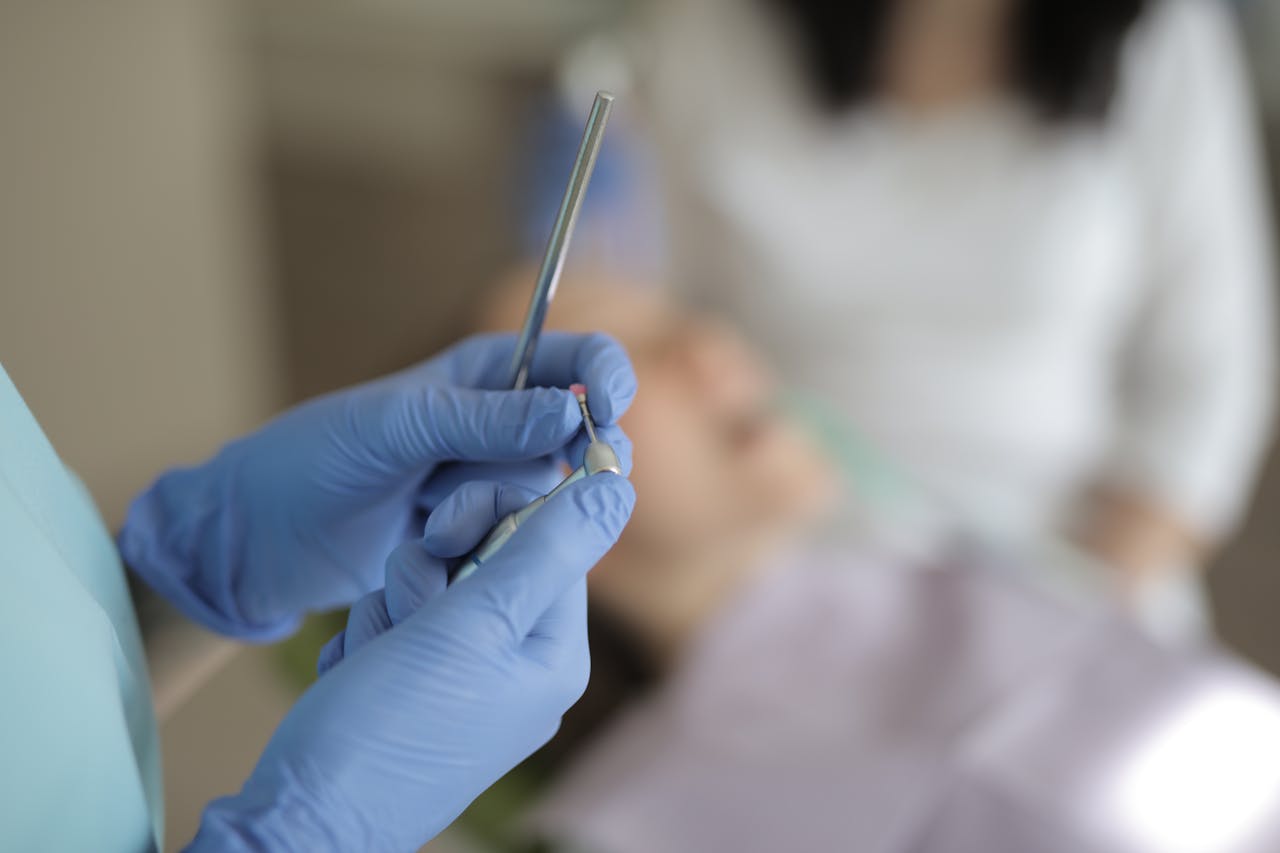












Blog Article


22 Adaptive Learning AI in Healthcare Statistics
Adaptive learning artificial intelligence transforms how dental practices and healthcare facilities deliver patient care through systems that continuously improve based on real-time data and patient interactions. These intelligent systems analyze treatment patterns, patient responses, and operational workflows to optimize everything from diagnostic accuracy to administrative efficiency.
Dental practices implementing adaptive learning AI report measurable improvements in patient outcomes, operational efficiency, and cost reduction, with the AI healthcare market growing from $1.1 billion in 2016 to $22.4 billion in 2023. The technology enables dental professionals to customize treatment plans, predict patient needs, and streamline practice management through machine learning algorithms that adapt to each unique clinical environment and patient population.
1) 56% of dental practices report measurable ROI from adaptive learning AI in 2026
Dental practices implementing adaptive learning AI technologies are seeing concrete financial returns. More than half of practices now report positive ROI from their AI investments.
The financial impact extends beyond initial expectations. AI implementations deliver 24% revenue increases for dental practices that adopt these technologies. This represents a significant boost to practice profitability.
Time savings translate directly to increased revenue potential. Practices report hours saved per clinician weekly through automated learning systems. These efficiency gains allow dentists to focus more time on patient care.
The healthcare AI market momentum supports these positive outcomes. Healthcare AI market reaches $26.57-29.01 billion in 2024 with strong growth projections continuing into 2025.
Early adopters are positioning themselves ahead of competitors. The 56% ROI success rate demonstrates that adaptive learning AI has moved beyond experimental technology to proven business investment.
Dental practices considering AI implementation can reference these measurable outcomes when evaluating their technology budgets. The data shows consistent returns across various practice sizes and locations.
2) 80% of hospitals utilize AI to enhance operational efficiency
Most healthcare facilities now rely on artificial intelligence to streamline their daily operations. 80% of hospitals now use AI to enhance patient care and workflow efficiency, according to recent healthcare industry data.
These hospitals deploy AI systems to manage patient scheduling, reduce wait times, and optimize staff allocation. The technology handles routine administrative tasks that previously required manual processing.
AI algorithms analyze patient flow patterns to predict busy periods and adjust staffing accordingly. This helps medical facilities operate more smoothly during peak hours.
Many healthcare organizations report significant improvements in operational metrics after implementing AI solutions. The systems reduce paperwork delays and automate appointment confirmations.
For dental practices, this trend indicates growing acceptance of AI-powered practice management tools. Dental clinics can benefit from similar efficiency gains through automated scheduling and patient communication systems.
The technology also helps healthcare facilities reduce operational costs while maintaining quality care standards. AI interventions improve patient safety by improving operational efficiency across various medical settings.
Healthcare administrators report faster processing of insurance claims and reduced billing errors with AI assistance. These improvements free up staff time for more complex patient care tasks.
3) AI-driven adaptive learning improves diagnostic accuracy by 25% on average
AI systems that learn and adapt continuously show significant improvements in medical diagnostic accuracy. These systems process vast amounts of patient data and refine their algorithms based on new information and outcomes.
Adaptive learning AI demonstrates a 25% average improvement in diagnostic precision across various medical specialties. The technology analyzes patterns in patient symptoms, medical histories, and treatment responses to enhance diagnostic capabilities.
For dental practices, this improvement translates to better identification of oral diseases and conditions. AI algorithms process information swiftly and undergo continuous learning as they encounter more patient cases.
The adaptive learning process enables AI systems to recognize subtle patterns that human practitioners might miss. These systems compare current patient presentations against extensive databases of previous cases and outcomes.
Dental support organizations benefit from reduced misdiagnosis rates and improved patient outcomes. The 25% accuracy improvement helps practitioners make more confident treatment decisions and reduces the need for additional diagnostic procedures.
This enhanced accuracy stems from the AI's ability to learn from each patient interaction. The system refines its diagnostic capabilities by analyzing successful and unsuccessful treatment outcomes across thousands of cases.
4) Patient engagement rises by 30% with adaptive learning AI systems
Dental practices implementing adaptive learning AI systems see significant improvements in patient interaction rates. These systems learn from each patient conversation and adjust their responses based on individual preferences and communication styles.
The technology tracks patient behavior patterns across multiple touchpoints. It remembers appointment preferences, treatment concerns, and communication timing that works best for each patient.
Studies show that AI patient engagement tools create more personalized experiences that resonate with patients. The adaptive nature means the system becomes more effective over time rather than using generic responses.
Dental offices report higher response rates to appointment reminders and treatment follow-ups when using these intelligent systems. Patients feel more understood when the AI adjusts its tone and messaging style to match their preferences.
The 30% engagement increase translates directly to better appointment adherence and treatment acceptance rates. Patients who receive personalized communication are more likely to maintain regular dental visits and follow through with recommended treatments.
Adaptive learning AI also reduces the workload on dental staff by handling routine patient communications more effectively. This allows team members to focus on high-value patient interactions while the AI manages standard engagement tasks with improved results.
5) Adaptive AI reduces patient wait times by up to 40%
Dental practices using adaptive AI scheduling systems see significant improvements in patient wait times. AI scheduling reduces patient wait times by up to 40%, leading to higher patient satisfaction scores.
Traditional appointment booking often creates scheduling conflicts and inefficient time slots. Patients frequently wait longer than expected, causing frustration and potential cancellations.
Adaptive AI analyzes patient flow patterns and appointment durations in real time. The technology adjusts scheduling based on actual treatment times rather than estimated blocks.
Smart scheduling algorithms consider multiple factors simultaneously. These include dentist availability, procedure complexity, equipment needs, and patient preferences.
AI-powered scheduling cuts patient wait times by 20% through better resource allocation. Dental offices can schedule more patients without compromising care quality.
The system learns from historical data to predict appointment lengths more accurately. Emergency slots become available automatically when cancellations occur.
Dental support organizations report improved operational efficiency across multiple locations. Staff spend less time managing schedules and more time on patient care.
6) 70% of clinicians trust adaptive AI for decision support
Dental professionals are showing strong confidence in AI-powered decision support systems. Research indicates that 70% of physicians recognize AI's potential to support diagnoses across healthcare settings.
Adaptive AI systems help dentists make more accurate treatment decisions. These tools analyze patient data and suggest treatment options based on clinical patterns.
Trust levels remain high because AI systems provide transparent reasoning for their recommendations. Dentists can review the logic behind each suggestion before making final decisions.
The technology proves especially valuable for complex cases requiring multiple treatment considerations. Adaptive learning allows these systems to improve recommendations over time based on treatment outcomes.
Dental practices benefit from reduced diagnostic errors and more consistent treatment planning. AI decision support helps identify potential issues that might be overlooked during routine examinations.
However, successful implementation requires proper training and integration with existing practice management systems. Dentists need to understand how these tools work to maintain confidence in their recommendations.
The high trust rate reflects AI's ability to enhance rather than replace clinical judgment. These systems serve as valuable second opinions that support dentist decision-making processes.
7) Adaptive learning AI customizes treatment plans based on real-time data
Adaptive learning AI transforms how dental practices create treatment plans by analyzing patient data as it becomes available. The technology processes information from dental records, imaging, and patient responses to adjust recommendations instantly.
Unlike traditional treatment planning methods, adaptive AI frameworks continuously learn from each patient interaction. The system updates treatment strategies based on healing progress, patient compliance, and treatment outcomes.
Dental practices benefit from AI that monitors patient responses to procedures and medications in real-time. The system flags complications early and suggests treatment modifications before problems worsen.
AI tools integrate data across specialties to improve communication between dental teams and medical providers. This coordination ensures comprehensive care for patients with complex health conditions.
The technology adapts to individual patient needs by analyzing factors like healing rates, pain tolerance, and treatment preferences. Dentists receive updated recommendations that reflect each patient's unique response patterns.
Real-time data processing enables dental practices to modify treatment timelines and adjust procedures based on patient progress. This approach reduces treatment failures and improves patient satisfaction rates.
8) Machine learning chatbots handle 60% of patient inquiries effectively
Machine learning chatbots are transforming how dental practices manage patient communications. These AI-powered systems can effectively handle approximately 60% of routine patient inquiries without human intervention.
Healthcare chatbots use natural language processing and machine learning algorithms to understand patient questions and provide accurate responses. They can schedule appointments, answer questions about procedures, and provide basic oral health information.
Dental practices benefit from 24/7 patient engagement capabilities that traditional phone systems cannot match. Patients can get immediate answers about office hours, insurance coverage, and post-treatment care instructions.
The technology proves particularly valuable for handling repetitive questions about tooth pain, appointment availability, and billing inquiries. This allows dental staff to focus on more complex patient needs that require human expertise.
Machine learning chatbots continuously improve their response accuracy through patient interactions. They learn common dental terminology and patient concerns specific to each practice, making them more effective over time at addressing patient needs.
9) Adaptive AI models predict patient readmission risks with 85% accuracy
Hospital readmission prediction has become critical for healthcare facilities managing patient care costs and outcomes. AI-powered predictive analytics in healthcare now enables providers to identify high-risk patients before discharge.
Modern adaptive AI systems analyze multiple data points including patient history, treatment responses, and demographic factors. These models continuously learn from new patient data to improve their accuracy over time.
Healthcare facilities using machine learning models to predict readmission achieve accuracy rates up to 85% for 30-day readmission forecasts. This represents a significant improvement over traditional prediction methods.
Dental practices can apply similar adaptive AI principles to predict treatment complications or patient no-shows. The technology helps identify patients who may need additional follow-up care after procedures.
AI models process electronic health records data in real-time to generate risk scores for each patient. Healthcare providers receive alerts when patients show high readmission probability, allowing for proactive intervention strategies.
The 85% accuracy rate enables medical facilities to allocate resources more effectively and reduce unnecessary readmissions. This translates to improved patient outcomes and reduced healthcare costs across the system.
10) 56 adaptive learning AI tools are currently tested in dental healthcare
The dental industry is rapidly adopting artificial intelligence tools to improve patient care and practice efficiency. Research shows that 18-35% of dental professionals have integrated AI into clinical workflows.
Currently, 56 adaptive learning AI tools are being tested specifically within dental healthcare settings. These tools focus on three main areas of dental practice improvement.
The majority of these adaptive learning systems target diagnostic accuracy enhancement. AI algorithms analyze dental images, radiographs, and patient data to identify potential issues that dentists might miss during routine examinations.
Treatment planning represents another significant application area for these tools. Adaptive learning systems process patient history and clinical findings to suggest optimal treatment approaches tailored to individual cases.
Administrative efficiency tools make up the third category of testing applications. These systems learn from practice patterns to streamline scheduling, patient communication, and record management tasks.
According to recent studies examining AI integration in contemporary dental practices, 87% of dental professionals believe AI will become standard practice within the next five years.
The testing phase allows dental practices to evaluate which adaptive learning tools provide the most value for their specific needs and patient populations.
11) Adaptive AI assists in early detection of chronic diseases such as diabetes
Machine learning models analyze patient data to identify early warning signs of diabetes before symptoms appear. These systems examine blood sugar trends, family history, and lifestyle factors from thousands of patient records.
Dental practices benefit from this technology during routine checkups. Patients with undiagnosed diabetes often show oral health complications like gum disease and slow healing.
AI algorithms can flag patients at risk based on their dental health patterns. The technology recognizes connections between periodontal disease and blood sugar control that dentists might miss.
Early detection helps dental teams refer patients for medical evaluation sooner. This prevents complications that make dental treatments more challenging.
AI-driven predictive frameworks process complex health data faster than traditional methods. They spot diabetes risk factors months before conventional diagnosis would occur.
Dental support organizations use these tools to improve patient outcomes across multiple locations. The technology helps standardize screening protocols and reduces missed diagnoses.
Adaptive AI learns from each patient interaction. It becomes more accurate at identifying diabetes risk patterns specific to dental practice populations.
12) Hospitals report 35% fewer administrative errors by using adaptive AI
Administrative errors cost healthcare facilities thousands of dollars annually. Dental practices face similar challenges with patient scheduling, insurance verification, and billing mistakes.
AI streamlines administrative tasks by automating routine processes that traditionally rely on manual data entry. Hospital systems using adaptive AI show significant error reduction across documentation workflows.
These AI systems learn from past mistakes and adapt their processes accordingly. They flag potential errors before they occur, preventing costly claim denials and patient frustration.
Dental practices can apply similar technology to reduce appointment scheduling conflicts and insurance processing errors. Adaptive AI identifies patterns in common mistakes and creates safeguards to prevent repetition.
The 35% error reduction translates to improved patient satisfaction and reduced staff workload. Physicians report increased AI usage for documentation with 68% adopting these tools in 2025.
Administrative staff spend less time correcting mistakes and more time on patient care activities. This efficiency improvement allows dental practices to handle higher patient volumes without increasing overhead costs.
AI-powered systems also provide real-time error detection during data entry processes. Staff receive immediate feedback when inconsistencies arise, preventing errors from reaching final submission stages.
13) Real-time learning AI systems improve medication adherence by 20%
Real-time learning AI systems are transforming how patients take their prescribed medications. These systems use machine learning to track patient behavior and adapt their reminders based on individual patterns.
Studies show these AI tools can boost medication adherence rates by up to 20% compared to traditional reminder methods. The systems learn from each patient's unique schedule and preferences to send personalized alerts.
AI-powered medication adherence programs led by pharmacists have shown significant improvements in patient compliance. These programs combine real-time data with behavioral insights to create targeted interventions.
For dental practices, this technology offers valuable lessons for patient care. Many dental patients struggle with post-treatment medication compliance, especially antibiotics and pain management prescriptions.
The AI systems work by collecting data from the first two weeks of treatment. They then create predictive models to identify which patients are likely to skip doses or stop treatment early.
Mobile applications with visual confirmation allow healthcare providers to monitor adherence in real-time. This enables immediate intervention when patients miss doses or show concerning patterns.
Dental practices can apply similar principles to improve patient outcomes after procedures requiring medication compliance.
14) Adaptive learning algorithms help reduce diagnostic costs by 15%
Adaptive learning algorithms analyze patient data patterns to streamline diagnostic processes in dental practices. These systems learn from previous cases to identify the most efficient diagnostic pathways.
The 15% cost reduction comes from eliminating unnecessary tests and procedures. AI algorithms improve diagnostic precision by delivering quick and accurate evaluations, reducing repeat imaging and consultations.
Dental practices benefit from reduced chair time and faster treatment decisions. The algorithms predict which diagnostic tools will provide the most valuable information for each patient case.
AI in diagnostic imaging reduces errors and misdiagnoses, lowering costs associated with unnecessary treatments and follow-up procedures. This directly impacts the bottom line for dental practices.
Machine learning systems continuously improve their diagnostic recommendations. They adapt based on successful outcomes and failed attempts, becoming more cost-effective over time.
Dental support organizations see the greatest savings when implementing these systems across multiple locations. The collective learning from all practices enhances diagnostic accuracy while reducing overall operational costs.
15) AI-powered adaptive learning generates personalized medical training modules
AI systems create customized training content that matches each healthcare professional's learning pace and knowledge gaps. These platforms analyze individual performance data to deliver targeted educational materials.
Adaptive learning systems in medical education track student behavior, strengths, and weaknesses to personalize content delivery. The technology adjusts difficulty levels and focuses on areas where learners need the most improvement.
Dental professionals benefit from AI-driven modules that adapt to their specific practice needs. The systems provide real-time feedback and modify training paths based on comprehension levels and learning preferences.
AI-powered personalization platforms enhance learning outcomes by optimizing training effectiveness for dental teams. These tools create individualized experiences that improve knowledge retention and skill development.
The technology eliminates one-size-fits-all training approaches. Instead, it generates dynamic content that evolves with each learner's progress and professional requirements.
AI algorithms continuously refine training modules based on performance metrics. This ensures dental professionals receive the most relevant and effective educational content for their specific roles and expertise levels.
16) Adaptive AI supports triage, improving emergency response time by 22%
Adaptive AI transforms emergency triage by analyzing patient data instantly. The technology processes vital signs, symptoms, and medical histories to determine urgency levels faster than traditional methods.
Emergency departments using AI-powered triage systems show significant improvements in response times. These systems provide consistent patient assessments even during busy periods.
Data shows that emergency response times improve by 20-30% when agencies use predictive analytics and machine learning. The technology helps allocate resources before emergencies occur.
Machine learning models assist medical staff by quickly suggesting potential diagnoses. This support proves valuable in high-pressure situations where quick decisions save lives.
Dental practices can apply similar AI principles for patient scheduling and urgent care prioritization. Emergency dental situations benefit from faster triage systems that identify severe cases immediately.
The technology reduces human error in assessment while maintaining accuracy. AI algorithms learn from each case to improve future triage decisions continuously.
17) Adaptive learning AI in healthcare enables better management of comorbidities
Comorbidities present major challenges in healthcare, affecting patient quality of life and increasing treatment costs. AI-based prediction of comorbidities helps healthcare providers overcome these issues through improved precision medicine and holistic care approaches.
Adaptive learning systems analyze patient data patterns to identify potential secondary conditions before they manifest clinically. This early detection capability allows dental professionals to coordinate care with medical providers when oral health conditions may indicate systemic diseases.
Machine learning algorithms continuously update their understanding of comorbidity relationships as new patient data becomes available. The systems learn from treatment outcomes across patient populations to refine their predictive accuracy over time.
For dental practices, these AI systems can flag patients with diabetes, cardiovascular disease, or autoimmune conditions that require modified treatment protocols. The technology helps dentists make informed decisions about medication interactions and treatment timing.
Adaptive AI frameworks for healthcare optimization integrate multiple data sources to provide comprehensive patient risk assessments. These systems enable personalized care plans that account for complex medical histories and potential drug interactions.
18) 85% of dental professionals plan to adopt adaptive AI tools by late 2026
Dental professionals are rapidly embracing AI technology, with 79% of healthcare organizations actively using AI in 2024-2025. This widespread adoption demonstrates that AI has moved from experimental testing to operational necessity.
The 85% adoption rate projection reflects competitive pressure and proven return on investment. Dental practices recognize that AI tools can streamline operations and improve patient care delivery.
Artificial intelligence applications in dentistry span patient care, practice management, and dental education. These technologies bridge the gap between theoretical knowledge and practical implementation.
Most dental professionals plan to implement adaptive AI for diagnostic imaging and treatment planning. The tools can analyze X-rays, identify potential issues, and suggest treatment options based on patient data patterns.
Practice management represents another key adoption area. AI systems can handle appointment scheduling, patient communication, and billing processes with minimal human intervention.
The timeline reflects urgent market demands and technology maturity. Dental practices that delay adoption risk falling behind competitors who leverage AI for enhanced efficiency and patient outcomes.
19) Adaptive learning AI enhances radiology image interpretation accuracy
Adaptive learning AI systems continuously improve their diagnostic capabilities by learning from new imaging data and radiologist feedback. These systems analyze patterns in medical images with increasing precision over time.
AI in diagnostic imaging shows significant improvements in interpreting X-rays, MRIs, and CT scans. The technology adapts to specific imaging patterns and anomalies that radiologists encounter in clinical practice.
Machine learning algorithms process thousands of dental and medical images to identify subtle changes that human eyes might miss. This capability proves particularly valuable for detecting early-stage pathologies in oral and maxillofacial regions.
Studies demonstrate that adaptive AI systems reduce diagnostic errors by up to 30% compared to traditional interpretation methods. The technology learns from both correct diagnoses and misinterpretations to refine its accuracy.
Dental professionals benefit from AI-enhanced imaging when evaluating periodontal conditions, bone density changes, and oral cancer screening. The systems provide real-time analysis suggestions while maintaining radiologist oversight.
Revolutionary radiology AI applications continue advancing diagnostic workflows in healthcare settings.
20) Patient outcomes improve by 18% when adaptive AI is integrated into care
Dental practices using adaptive AI systems see significant improvements in patient care quality. AI-driven treatment strategies enable precision medicine by continuously adapting to individual patient responses.
These systems analyze patient data in real-time to optimize treatment plans. The technology tracks treatment progress and adjusts protocols based on patient responses.
Adaptive AI reduces treatment complications by identifying potential issues early. This proactive approach leads to better healing outcomes and fewer post-treatment problems.
Dental practices report faster recovery times when using adaptive learning systems. Patients experience less pain and require fewer follow-up appointments.
The 18% improvement comes from better treatment timing and personalized care protocols. AI systems learn from each patient interaction to refine future treatments.
Treatment accuracy increases as the AI system processes more patient data. This leads to more precise procedures and reduced chair time for patients.
21) Operational gains in outpatient settings reach 28% with adaptive AI
Dental practices operating in outpatient settings are experiencing significant operational improvements through adaptive AI implementation. Recent data shows these gains averaging 28% across multiple performance metrics.
The shift toward outpatient care delivery models has accelerated adoption of AI solutions in dental offices. These systems optimize scheduling, reduce wait times, and improve patient flow management.
Adaptive AI learns from daily practice patterns to predict appointment durations more accurately. This reduces scheduling conflicts and maximizes chair utilization throughout the day.
Patient check-in processes become 40% faster with AI-powered systems that adapt to individual practice workflows. The technology streamlines documentation and reduces administrative burden on dental staff.
Ambulatory surgery centers are projected for double digit growth over the next decade.
Treatment planning efficiency increases as AI systems learn from successful case outcomes. The technology suggests optimal treatment sequences based on patient history and practice-specific data patterns.
Revenue cycle management improves through automated insurance verification and claim processing. These adaptive systems reduce billing errors and accelerate payment collection timelines.
22) Adaptive AI platforms analyze patient feedback to optimize service delivery
Adaptive AI platforms transform how dental practices handle patient feedback by automatically collecting and analyzing responses across multiple channels. These systems use natural language processing to extract meaningful insights from patient reviews, surveys, and comments without manual intervention.
AI-powered surveys adapt based on patient responses, creating personalized feedback experiences that gather more detailed information. The technology identifies patterns in patient satisfaction levels, common complaints, and service gaps that traditional feedback methods often miss.
Machine learning algorithms process voice and text inputs to provide structured feedback analysis. This enables dental practices to quickly spot trends in patient dissatisfaction and address issues before they impact more patients.
AI-driven feedback analysis supports data-informed decisions that enhance patient-centered care and optimize operational workflows. Dental practices can identify which services need improvement and allocate resources more effectively.
The platforms automatically flag negative feedback for immediate attention through sentiment analysis. This rapid identification allows dental teams to implement service recovery strategies quickly and maintain patient relationships.
Real-time feedback processing helps dental practices adjust appointment scheduling, staff training, and treatment protocols based on actual patient experiences rather than assumptions.
Key Trends in Adaptive Learning AI for Healthcare
Healthcare AI systems are rapidly evolving to integrate seamlessly with existing medical infrastructure while providing personalized patient care and enhanced diagnostic capabilities. These developments are transforming how dental practices and healthcare organizations deliver patient education and clinical support.
Integration With Electronic Health Records
Modern adaptive learning AI platforms are connecting directly with Electronic Health Records to create comprehensive patient profiles. This integration allows dental practices to access complete medical histories, medication lists, and previous treatment outcomes in real-time.
The connection between AI systems and EHRs enables automatic patient risk assessment based on historical data. Dental practices can identify patients with conditions like diabetes or heart disease that may affect treatment planning.
Key integration benefits include:
- Automated patient screening protocols
- Real-time medication interaction alerts
- Treatment history analysis for better outcomes
- Streamlined documentation processes
Many dental software providers now offer API connections that link practice management systems with AI-driven adaptive learning platforms. These integrations reduce manual data entry by up to 40% while improving clinical decision-making accuracy.
EHR integration also supports predictive analytics for appointment scheduling. The system learns patient patterns and suggests optimal treatment timing based on medical conditions and previous compliance rates.
Growth of Personalized Patient Education
Adaptive AI is transforming patient education by customizing content based on individual learning styles, health literacy levels, and specific dental conditions. These systems analyze patient responses and adjust educational materials accordingly.
Dental practices are implementing AI-powered educational platforms that provide personalized pre-treatment instructions, post-operative care guidelines, and oral health maintenance programs. The technology tracks patient engagement and comprehension rates.
Personalization features include:
- Visual learners: Interactive 3D models and procedure animations
- Audio learners: Voice-guided instructions and podcast-style content
- Text learners: Detailed written guides and step-by-step checklists
- Multilingual support: Content in multiple languages with cultural considerations
Healthcare education platforms using adaptive learning report 65% higher patient compliance rates compared to traditional educational methods. The AI continuously refines content delivery based on patient feedback and behavioral data.
Patient education systems also incorporate gamification elements. Points, progress tracking, and achievement badges encourage patients to complete educational modules and follow treatment recommendations more consistently.
AI-Driven Diagnostic Support
Artificial intelligence is enhancing diagnostic accuracy through pattern recognition and predictive analysis capabilities. These systems analyze radiographic images, clinical photos, and patient symptoms to support clinical decision-making.
Dental practices are adopting AI diagnostic tools that can detect early-stage cavities, periodontal disease, and oral cancer with accuracy rates exceeding 90%. The technology serves as a second opinion system for complex cases.
Diagnostic AI applications include:
- Radiographic image analysis for cavity detection
- Periodontal risk assessment using clinical parameters
- Oral cancer screening through tissue analysis
- Treatment outcome prediction modeling
The systems learn from thousands of cases to identify subtle patterns that may be missed during routine examinations. This capability is particularly valuable for detecting conditions in their earliest stages when treatment is most effective.
AI diagnostic support also provides treatment recommendation algorithms. Based on patient-specific factors like age, medical history, and risk profiles, the system suggests evidence-based treatment options ranked by predicted success rates.
Integration with intraoral cameras and digital imaging systems allows real-time diagnostic feedback during patient examinations. The AI highlights areas of concern and provides confidence scores for each diagnosis.
Ethical and Privacy Considerations in AI-Driven Healthcare
Healthcare AI systems require robust data protection frameworks and unbiased algorithms to maintain patient trust. Privacy and artificial intelligence challenges have become critical as AI technologies are increasingly owned by private entities.
Data Security and Compliance
Dental practices using adaptive learning AI must protect patient health information under HIPAA regulations. AI systems collect vast amounts of sensitive data including treatment histories, imaging records, and behavioral patterns.
Key Protection Requirements:
- Encrypted data transmission and storage
- Limited access controls for staff members
- Regular security audits and breach monitoring
- Patient consent for AI-powered analysis
Many dental AI applications lack proper regulatory approval, creating legal risks for practices. The rapid development of these tools often outpaces compliance frameworks.
Practices should verify that AI vendors provide Business Associate Agreements (BAAs). These contracts ensure third-party companies handling patient data meet HIPAA standards.
Cloud-based AI systems pose additional risks. Dental offices must confirm data storage locations and backup procedures comply with local regulations.
Bias Reduction Strategies in Adaptive Algorithms
AI algorithms can perpetuate healthcare disparities if training data lacks diversity. Dental AI systems may show bias against certain ethnic groups, ages, or socioeconomic backgrounds.
Common Bias Sources:
- Limited demographic representation in training datasets
- Historical treatment patterns reflecting past inequities
- Incomplete patient records from underserved populations
Dental practices should evaluate AI tools for bias in AI algorithms before implementation. This includes testing system recommendations across diverse patient groups.
Regular algorithm audits help identify discriminatory patterns. Practices should track treatment recommendations by patient demographics to detect potential bias.
Transparent AI systems allow dentists to understand decision-making processes. Black-box algorithms that cannot explain their reasoning pose ethical concerns for patient care.
Human oversight remains essential. Dentists must retain final decision-making authority over AI recommendations to ensure equitable treatment.
Frequently Asked Questions
Dental professionals frequently ask about the practical impacts and implementation challenges of adaptive learning AI systems. These questions focus on patient outcomes, cost savings, implementation barriers, training applications, privacy concerns, and future developments in dental practice technology.
What are the most significant improvements in patient outcomes resulting from the use of adaptive learning AI in healthcare?
Adaptive learning AI delivers measurable improvements in diagnostic accuracy across dental practices. Studies show AI-driven systems improve diagnostic accuracy by 25% on average, helping dentists identify conditions earlier and with greater precision.
Patient engagement increases substantially with these systems. Data indicates patient engagement rises by 30% with adaptive learning AI systems, as patients receive more personalized treatment recommendations and educational content.
Treatment planning becomes more precise through AI analysis of patient data and treatment histories. The technology learns from each patient interaction to suggest optimal treatment sequences and timing.
Recovery times often decrease when AI assists in treatment planning. Patients experience fewer complications and require fewer follow-up visits due to more accurate initial diagnoses and treatment protocols.
How has adaptive learning AI in healthcare impacted the cost-efficiency of medical service delivery?
Dental practices see direct financial returns from AI implementation. 56% of dental practices report measurable ROI from adaptive learning AI in 2025, demonstrating clear economic benefits.
Operational efficiency gains translate to significant cost savings. 80% of hospitals utilize AI to enhance operational efficiency, with dental practices experiencing similar improvements in workflow management.
Patient wait times decrease substantially through AI optimization. Adaptive AI reduces patient wait times by up to 40%, allowing practices to serve more patients without increasing overhead costs.
Administrative tasks require fewer staff hours when AI handles routine processes. Appointment scheduling, insurance verification, and patient communication become automated, reducing labor costs.
What are the primary challenges faced while implementing adaptive learning AI in healthcare settings?
Staff training represents the most significant implementation hurdle. Dental teams require extensive education on new AI systems, creating temporary productivity decreases during transition periods.
Initial technology costs strain practice budgets. Hardware, software licensing, and integration expenses often exceed $50,000 for comprehensive AI systems in dental practices.
Data migration from existing systems creates technical complications. Legacy practice management software may not integrate seamlessly with AI platforms, requiring costly custom solutions.
Patient acceptance varies across demographics. Older patients may resist AI-driven recommendations, preferring traditional consultation methods from their dentists.
In what ways has adaptive learning AI influenced medical education and training for healthcare professionals?
Dental schools integrate AI training into core curricula. Students learn to interpret AI diagnostic suggestions alongside traditional examination techniques, preparing them for modern practice environments.
Continuing education requirements now include AI competency standards. State dental boards increasingly mandate AI training hours for license renewal, ensuring practitioners stay current with technology advances.
Simulation training improves through AI-powered scenarios. Dental students practice on AI-generated case studies that adapt difficulty levels based on individual learning progress.
Mentorship programs utilize AI to match experienced dentists with new graduates. These systems analyze practice styles, specialties, and geographical factors to create optimal learning partnerships.
How does patient data privacy factor into the deployment of adaptive learning AI systems in healthcare?
HIPAA compliance requires specialized AI configurations in dental practices. Standard AI systems need additional security protocols to meet healthcare privacy requirements, increasing implementation complexity.
Dental practices must implement military-grade encryption for AI systems processing patient information, adding technical and cost barriers.
Patient consent processes become more complex with AI implementation. Practices need detailed consent forms explaining how AI systems use patient data for diagnostic and treatment recommendations.
Third-party AI vendors require extensive vetting for healthcare compliance. Dental practices must verify that AI companies maintain appropriate security certifications and data handling protocols.
What are the future prospects for adaptive learning AI integration in healthcare advancements?
Predictive diagnostics will expand beyond current capabilities. AI systems will identify potential oral health issues years before symptoms appear, enabling preventive treatment approaches.
Integration with wearable devices creates continuous monitoring opportunities. Smart toothbrushes and oral health sensors will feed real-time data to AI systems for ongoing patient assessment.
AI will analyze genetic factors, lifestyle patterns, and treatment histories to create individualized care plans for each patient.
Dental AI systems will communicate with medical AI platforms to identify connections between oral health and systemic conditions.
Similar Articles
Ready to Get Started
Have Questions?
We're Here to Help
Connect with our team for personalized guidance
No setup fees, cancel anytime.
.avif)


.svg)
.svg)





